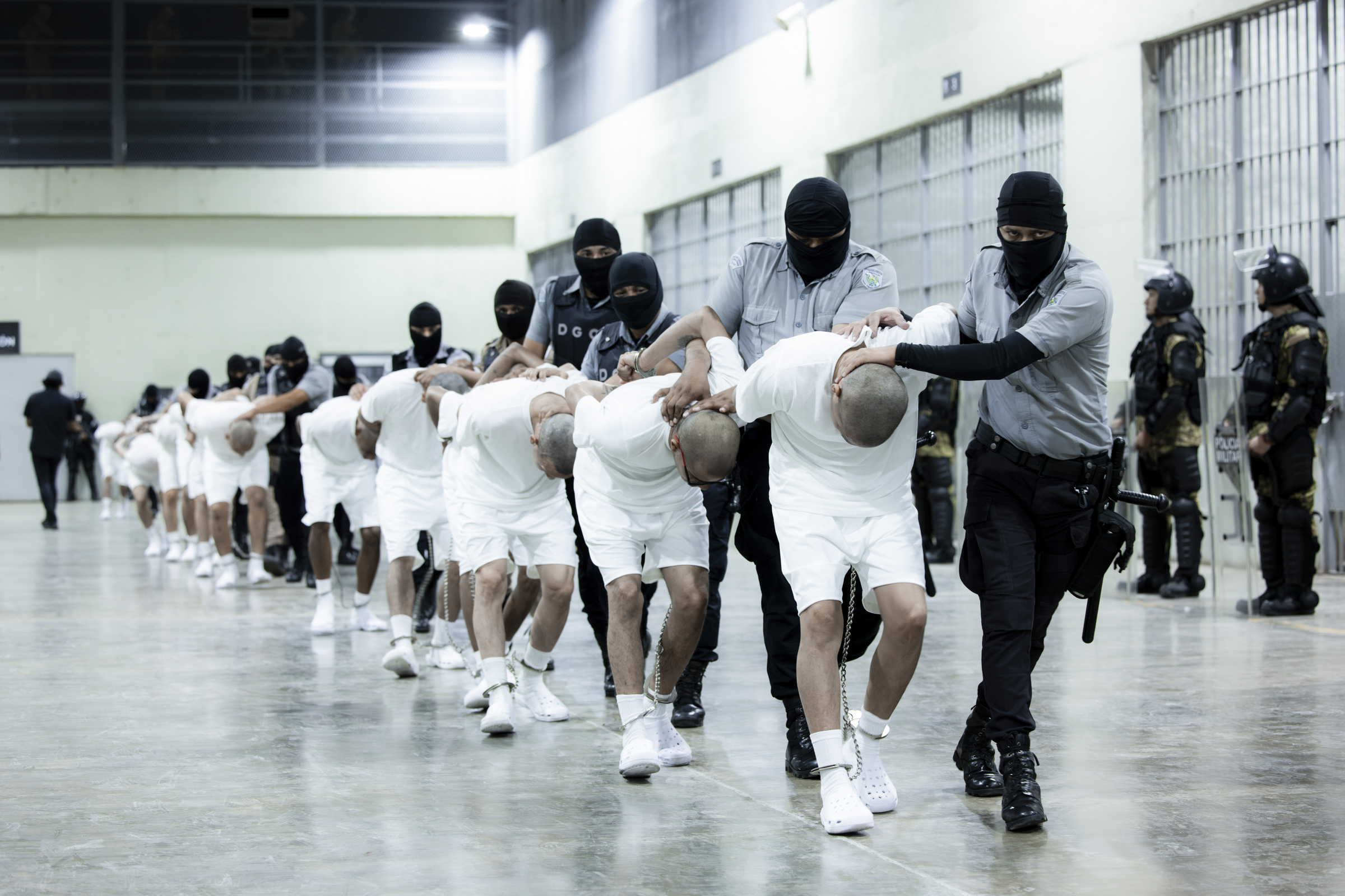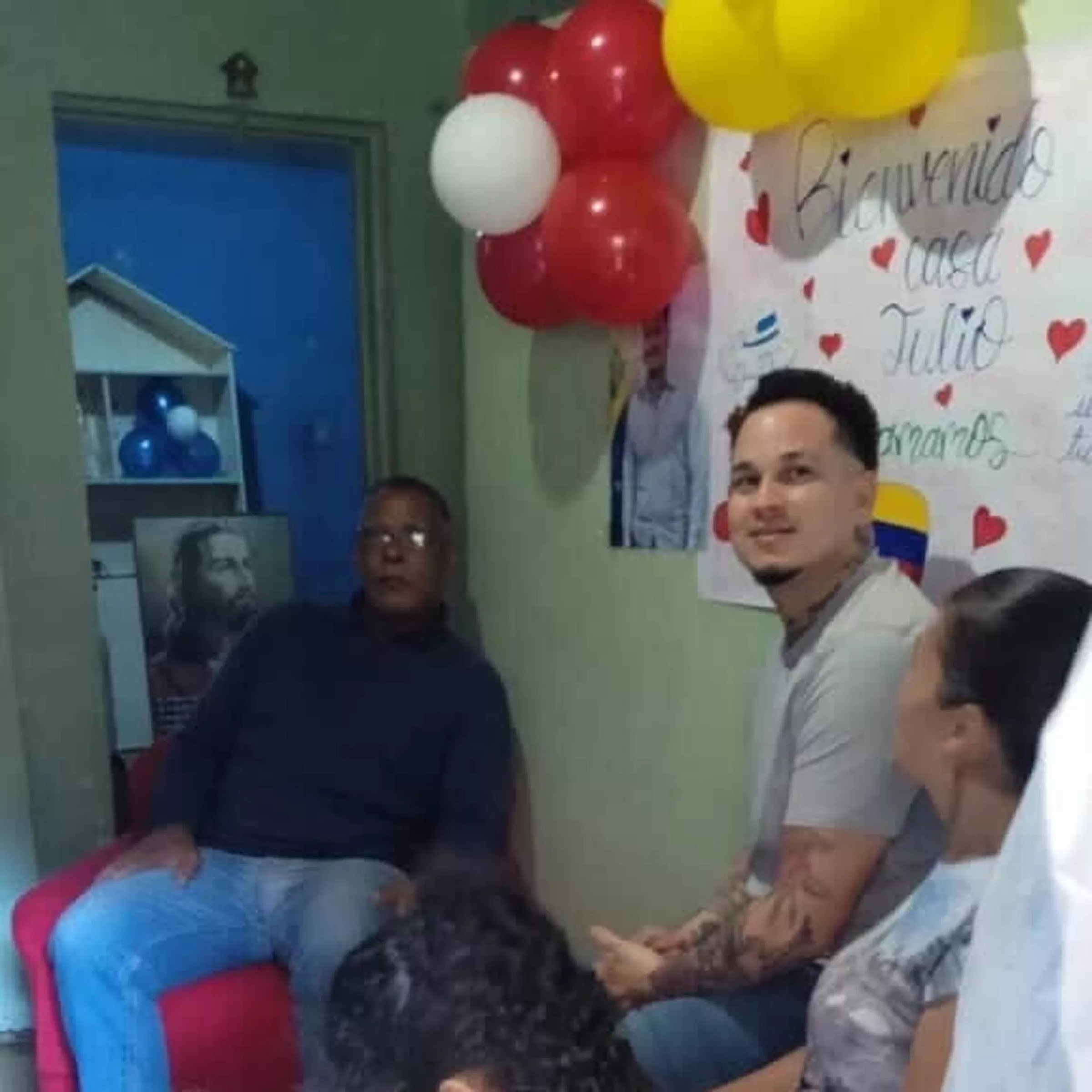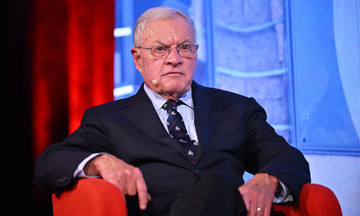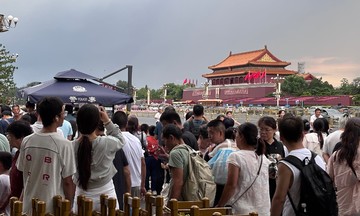Julio Gonzalez Jr., 36, believed he was returning to Venezuela after being deported from the US in March amidst the Trump administration's immigration crackdown. He boarded a flight from Texas, expecting to land in his homeland. Instead, the plane touched down in El Salvador. Gonzalez and his fellow passengers soon realized their destination: the Center for the Confinement of Terrorism (CECOT), a notorious "mega-prison" opened in 2023 outside the capital, San Salvador, to house high-ranking gang members.
The US government paid El Salvador's President Nayib Bukele 6 million USD to detain hundreds of deported immigrants in the world's largest prison. "That's where the horror movie began," Gonzalez said.
 |
Deportees from the US are escorted into CECOT prison in Tecoluca, El Salvador on 15/3. Photo: AP |
Deportees from the US are escorted into CECOT prison in Tecoluca, El Salvador on 15/3. Photo: AP
Unable to find work in Venezuela, Gonzalez made his way to Mexico, waiting months at the border before legally entering the US in 4/2023 after applying for asylum with US Customs and Border Protection. However, upon arrival, he was accused of ties to Tren de Aragua, a Venezuelan gang designated as a foreign terrorist organization by the US, and detained for a year. Gonzalez maintains he had no criminal record. US Immigration and Customs Enforcement (ICE) released him in 2024 to a sponsor in the US, requiring an ankle monitor and regular check-ins. He worked as an office cleaner and house painter to make ends meet.
After his asylum application was denied, Gonzalez applied for Temporary Protected Status, a Department of Homeland Security program allowing citizens of certain countries to stay and work in the US. While awaiting a decision, he was detained again and signed deportation papers for Venezuela. Initially scheduled to return on 13/3, his flight was delayed due to bad weather. He told his parents he would arrive on 15/3. At 9 a.m. on 15/3, his parents lost contact. They later found his name on a list of detainees deported to El Salvador. Gonzalez says he doesn't know why he was sent to CECOT, insisting he is not a gang member or criminal. The US government has provided no evidence for their accusation.
Migrants alleged to be members of Venezuelan gangs are deported from the US to El Salvador on 16/3. Video: Office of the President of El Salvador
Gonzalez describes being shackled during the flight, then herded onto a bus to the massive gray complex. Guards forced them to kneel with heads down at gunpoint. A man sneered, "Welcome to El Salvador, you bastards." Arriving at CECOT, Gonzalez lost his 6,400 USD savings, hidden in his underwear. Ordered to change into the prison uniform of white shoes, socks, and clothes, his money vanished. "I entered there with no phone, no money, nothing," he said.
During his 4 months at CECOT, Gonzalez endured beatings with wooden sticks. Guards would kick inmates in the chest and stomach. He had no access to a lawyer or contact with his family. "The officials there treated us like we were the most dangerous criminals on Earth," Gonzalez recounted. "They shaved our heads and insulted us."
Venezuelans were housed 9 to 15 per cell, sleeping on metal benches, using buckets for drinking and bathing. "The cell looked like a cage," he said, describing sweltering days and frigid nights. Waking at 4 a.m., inmates followed a strict bathing schedule. Those caught bathing outside allotted times were sent to "the island," where guards tied them to chairs and beat them.
 |
Gonzalez (in gray) with family members during a reunion celebration in Caracas, Venezuela. Photo: WP |
Gonzalez (in gray) with family members during a reunion celebration in Caracas, Venezuela. Photo: WP
A hunger strike in April worsened conditions. Guards fired rubber bullets and plastic pellets at inmates. Requests for legal counsel were met with, "That doesn't happen here." Inmates subsisted on three daily meals of tortillas and beans, playing chess with leftover beans and exercising to pass the time.
Last week, Gonzalez returned home after Washington agreed to release 252 Venezuelans in a deal with Caracas, which freed 10 US citizens and permanent residents held in Venezuela. Reunited with his family after 125 days of isolation, Gonzalez said, "They tortured us physically and mentally. What I went through is indescribable." Venezuela is investigating Salvadoran officials, including President Bukele, for alleged mistreatment of the deportees. A US Department of Homeland Security spokesperson said they deported "nearly 300 terrorist members of the Tren de Aragua and MS-13 gangs" to CECOT, "where they are no longer a threat to the American people." In a statement, Assistant Secretary Tricia McLaughlin said, "Once again, the media is coming to the defense of illegal criminal gang members. We hear too much about the ‘sob stories’ of gang members and criminals and not enough about their victims."
Thuy Lam (According to the Washington Post, CNN)












